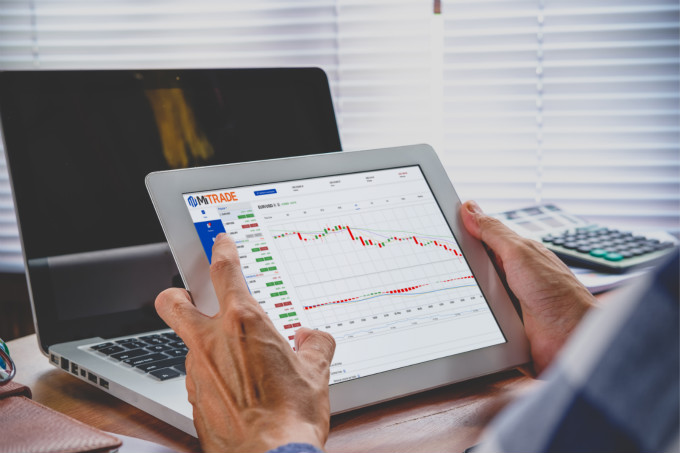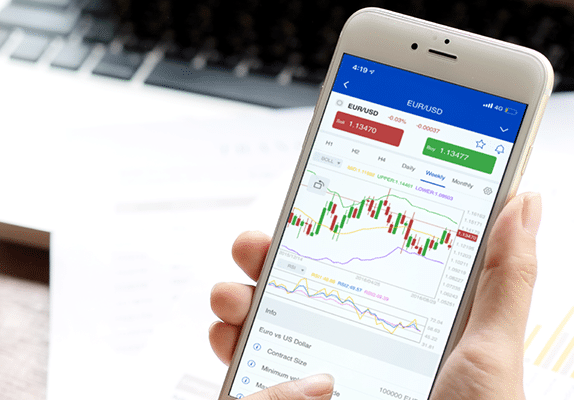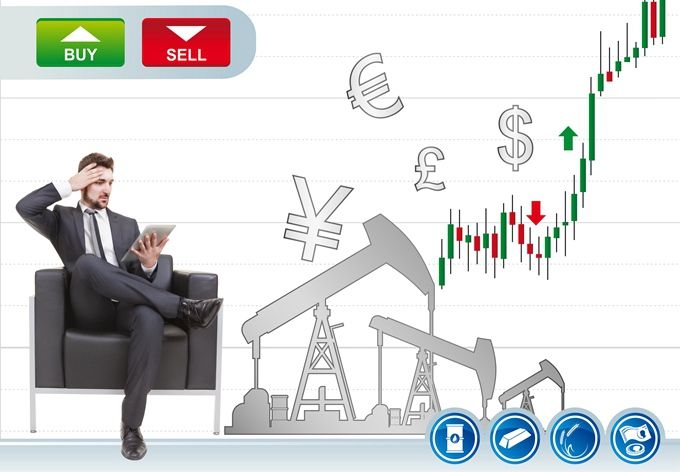10 Of Leading Low Spread Forex Brokers 2023 [Tight Spread Brokers]
When you look at the forex pair, you will notice a difference between the broker's buy and sell rates. This difference is a small cost built into every pair called a spread.
Spread, as the cost factor, is essential for forex traders.
Low spread means smaller costs for traders and usually represents less volatility and little price move.
Selecting the forex brokers with low spreads is prudent whether as a beginner or experienced trader.
We have researched extensively and handpicked nine regulated forex brokers with tight spreads. The brokers are located in countries like Australia and the UK. Ensure you check whether the forex brokers are acceptable in your country.
What Does A Low Spread Broker Mean?
The spread is the main cost of opening a trading position in the forex. It is the small difference between the Bid and Ask prices. A low spread in forex is equal to or lower than the industry average for the specific instrument or currency pair. Therefore, you need to know the average rates for the specific pair to determine whether a broker charges the lowest spreads in the market.

To save you from constant spread calculations, typical low spreads range from 0.1-1 pip for all major currency pairs, and 1-3 pips for most crosses and popular commodities. These are the average spreads to expect during regular trading hours from forex brokers with tight spreads. The spreads may widen briefly at the close of the market or during the release of high-impact news, but 95% of the time, they will remain low.
Keeping An Eye On Changes In The Spread
As mentioned above, the spreads can change at specific periods. Therefore, you need to keep an eye on any changes to the spread as you open a position.
Similarly, spread changes if a major economic release is scheduled on the currency pair or financial instrument. Many brokers widen the spreads a few seconds to the release time and at least two minutes after the release. Websites such as FX Street display schedules for major impact releases.
Spreads also widen around the New York close. This is the popular “market close” time in forex trading. Spreads begin to normalize an hour into the Tokyo session.
You can use special scripts or indicators to keep an eye on changes in spreads depending on your broker’s platform. Alternatively, you can simply watch the Bid and Ask price difference before you open a position.
10 Of The Lowest Spread Forex Brokers For 2023
Now, let's explore some regulated forex brokers with low spreads, their regulation bodies, rates, security, and trading platforms.
Please note that the trading conditions of the following broker may change over time. Past performance is no guarantee of future results. The list of brokers is just for reference. There are many other good brokers outside our list, and they might be more suitable than any broker on this list.
You should do more research to find the brokers that suit your personality. These are the top 10 low-spread forex brokers (in no particular order):
1. Mitrade
2. Pepperstone
3. IC Markets
4. Tickmill
5. Axitrader
6. XM
7. FP markets
8. FX Pro
9. Plus500
10. HotForex
#1. Mitrade
Open your trading account at Mitrade or try our risk-free demo account!
#2. Pepperstone
#3. IC Markets
#4. Tickmill
#5. Axitrader
#6. XM
#7. FP markets
#8. FxPro
#9. Plus500
#10. HotForex
The list gives nine low-spread forex brokers. Choose the most suitable based on your preference.
Why Should You Choose a Broker with Tight Spread?
✅ Lower transaction costs
Transaction costs are a big deal in forex trading. This is no surprise because most traders want to make as much money as possible in every position. When the transaction costs are high, you are already at a disadvantage.
Huge spreads eat into your profits even when the trade goes in your favor. Transaction costs may not be a big deal for smaller retail traders with positions worth less than $1 per pip. However, as the trade size increases, the cost of the spreads adds up quickly.
Here’s an example:
Joe trades the GBPJPY on a broker that charges 4 pips as a spread while James trades with broker that charges 1 pip as a spread. They are both day traders that take a minimum of 10 positions per day, and the size of each trade they open is $50 per pip.
Regardless of the profit target, James will save $1,500 every day (4-1x$50x10trades) on spread alone in comparison to Joe. That total balloons to a massive $7,500 over a trading week!
So, savvy traders avoid wide spreads that put them at a significant disadvantage even before considering profit and loss.
✅ More efficient trading strategies
The spread can affect the profitability of your trading strategy. Going back to our example above, if both Joe and James set automatic profit targets expecting to make 20 pips per trade, James’s trades will be closed as soon as the pair moves 21 pips. On the other hand, Joe will have to wait for the market to move by 25 pips. This means Joe will have to wait a little longer to close in the same profit.
If your spread is too wide, you might have more near-misses that can turn into losing trades. This will reduce the overall profitability of your strategy.
✅ More Flexibility in Trade Execution
Traders on tight spread forex brokers have more flexibility in opening trades because they can open and close positions at a low cost. If you open a trade with 0.6 pips spread and change your mind about the position after a while (say lack of movement), you will lose less than one pip’s worth in transaction costs.
However, if the spread is four pips or higher, it will be more complicated to wait for the trade to move in your direction first before closing to avoid losing considerable sums.
Trading With Low Spreads With Mitrade
If you want a clean and simple trading platform, Mitrade is your go-to platform. You will enjoy a sum of $50,000 virtual money to practice and formulate your best strategies before switching to a live account.
To start trading on Mitrade, follow these steps:
Step 1: Visit the trading platform.
Step 2: Search the markets you want to trade and select it

Step 3: Open a Long or Short position
Step 4: Set up your position size, stop-loss/ take-profit price
Step 5: Confirm the trade

( place an order on Mitrade )
Note: your margin will automatically appear on the deal ticket when you select your position size.
Are Low-Spread Forex Brokers As Good As You Think?
Low spreads and large bonuses do not necessarily make a forex broker good. While many brokerage firms claim to have very low spreads, the quality of their services does match up.
For example, A forex broker can lower spread fees while increasing other hidden expenses (commissions, swaps, account fees, deposit, and withdrawal fees). Similarly, brokers can offer extremely low spreads on particular currency pairs while having extremely high spreads on other traded assets. Also, they can offer a lot of promotions and bonuses, but the attached condition is hard to meet.
There are Forex brokers with low fees that care about their users. These Forex brokers are commonly licensed and regulated by high-level institutions and charge low fees.
Trading Online With Mitrade
How Do You Find a Forex Broker With Low Spreads?
To evaluate a Forex broker, you can consider the following aspects:
1. Observe the average spreads
Looking at the currency's lowest spread of one day will not give you the true picture. The spread is prone to increase. Therefore, you should observe the average spreads of different forex platforms.
2. Safety should be the top priority
When looking for a new Forex broker, it is critical to consider their security. Look up information about their licensing status to evaluate how well they are regulated about the safety of your assets.
3. Should have no hidden fees
In this case, the total transaction cost should be transparent with no hidden charges, such as spreads, commissions, and service fees.
4. Keep an eye on the trading conditions
The trading conditions include spreads, available leverage, trading assets, and deposit and withdrawal requirements. In general, forex brokers have varied trading conditions for traders in different regions. Australian traders using ASIC-regulated brokers can only utilize leverage less than 1:30. However, in Asia and Africa, most traders can utilize higher leverage because there are no local limits.
FAQ
Q: How to avoid high spreads in forex?
The first is to stay away from the market during extreme volatility, like when there are major news releases. Second, trade only high liquidity currency pairs, such as EURUSD, USDJPY, and GBPUSD, which have the lowest spreads in the market. Third, trade during the busiest trading hours, from 1 to 5 p.m., when liquidity is at its peak and costs are lower.
Q: What forex pairs have the lowest spreads?
Quite a colossal number of currency pairs have relatively low spreads. However, major currency pairs such as EUR/USD, GBP/USD, AUD/USD, USD/JPY, NZD/USD, USD/CAD, and USD/CHF have the lowest spreads.
Q: What is the lowest spread in Forex?
The spreads in forex markets vary. Some platforms have fixed spreads while others have variable spreads. The dynamic spreads vary starting from zero during high liquidity for major currency pairs. In this case, there is no difference between the bid and ask price. However, most brokers have spreads typically starting from 0.1.
Q: Is a zero-spread forex account better?
While many brokers advertise zero spreads, this can be misleading. In essence, zero spread is the lowest; this means that the spread starts at 0. However, you must ensure hidden fees and high commissions don’t accompany the low spread. Otherwise, unscrupulous traders will offer zero spreads and eat into your profits with high fees. A zero-spread account usually requires a higher margin deposit than a standard account.
Q: Why is low spread in forex important?
Spread give brokers an edge because trading positions open at a negative balance. Therefore, tight spreads are important to traders. When the spread is wide, it means your stop loss will be hit early. When the spread is low your trade closes near the exit point.
* The content presented above, whether from a third party or not, is considered as general advice only. This article should not be construed as containing investment advice, investment recommendations, an offer of or solicitation for any transactions in financial instruments.
- Original
- Trading Analysis
Risk Warning: Trading may result in the loss of your entire capital. Trading OTC derivatives may not be suitable for everyone. Please consider our legal disclosure documents before using our services and ensure that you understand the risks involved. You do not own or have any interest in the underlying assets.



.jpg)



